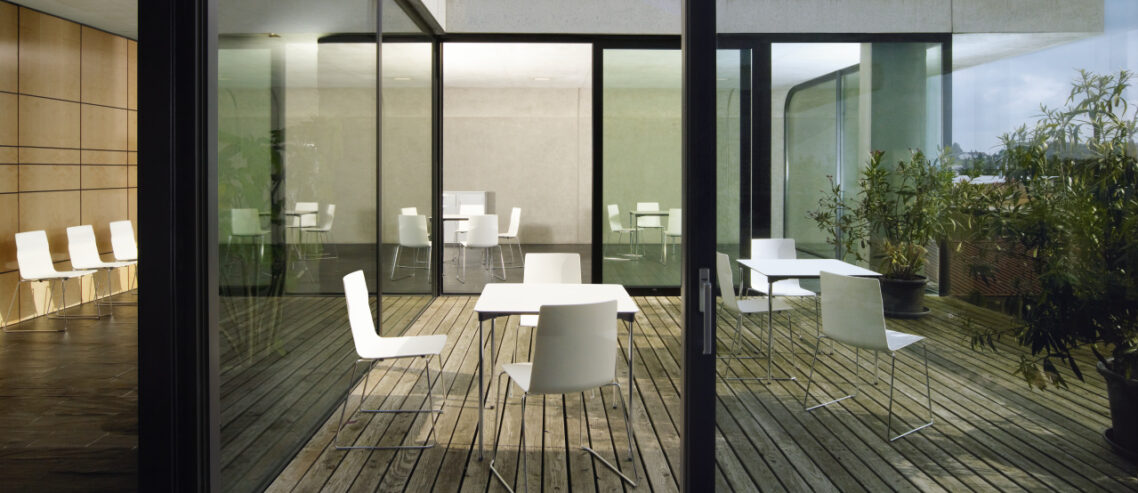Sedus and sustainability, an interview with Simon Roquette, Part One
Over the past few years, sustainability and its management have taken on ever greater prominence. Primarily, because of the desire to preserve precious resources and so protect the environment, but also because environmental standards have become increasingly strict and subject to greater scrutiny.
In this interview, Sedus’s environmental manager Simon Roquette explains how the company is positioning itself, which steps it has already taken and its goals for the future.
Question: First, a general question: how does Sedus approach the issues of sustainability and environmental protection?
Sustainability has been a key issue for Sedus since the company was founded. Christof Stoll was very interested in this topic as early as the 1970s, which was certainly exceptional at the time. His approach and concern for the future have remained unchanged to this day. Partly this is rooted in the firm’s various Foundations, but it is also evident in the way sustainability is embedded in all the firm’s processes.

Question: What appeal does “Made in Germany” have in this context?
Germany leads the world in terms of environmental laws, guidelines and certifications. That’s why we are in constant contact with local authorities and relevant professional associations. Although this is a major commitment for us as a company, it also gives us the reassurance that we are doing things correctly and responsibly. One example is our electroplating facilities. It’s true that we handle hazardous chemicals. But it’s also true that we use specially qualified personnel, subject the whole process to strict surveillance and regularly invest in this plant to keep it up to date. I believe this is the best way to work rather than just outsource the process to a country with less stringent environmental standards.
As far as procurement and supply are concerned, we always try to reduce transport distances to the absolute minimum, which means we can rely on locally produced materials. This means that our most important suppliers are based in Germany, supplying around three quarters of our materials, supplemented by suppliers from Italy and Switzerland, where these are closer than those in Germany.
 If we use suppliers whose environmental legislation differs from that of Germany, we inspect their production sites and make sure that we obtain all relevant information. In addition, we support and encourage suppliers to act sustainably more generally. Having this kind of oversight of the supply chain will become increasingly important. For example, with our sustainable forestry certification we can trace the supply chain back to the site of logging. In this way we can guarantee that no illegally harvested timber is used. The current crisis has shown how important it is for firms to have transparent and short supply chains.
If we use suppliers whose environmental legislation differs from that of Germany, we inspect their production sites and make sure that we obtain all relevant information. In addition, we support and encourage suppliers to act sustainably more generally. Having this kind of oversight of the supply chain will become increasingly important. For example, with our sustainable forestry certification we can trace the supply chain back to the site of logging. In this way we can guarantee that no illegally harvested timber is used. The current crisis has shown how important it is for firms to have transparent and short supply chains.
Also, the “Made in Germany” label is not only a guarantee of quality, but also reflects our commitment to Germany as a manufacturing base. A commitment that was recently highlighted with our significant investment in the production plants in Dogern and Geseke.
Question: Speaking of major investments, isn’t it expensive to continuously invest in the latest approaches to sustainability?
Yes, it is. For example, the conversion of the electroplating plant cost around 7.5 million euros in 2010 and the construction of our Smart Office also involved a large investment. However, Sedus does not consider sustainability as the only factor: a more modern plant often leads to increased efficiency, lower energy and material consumption and greater safety for those employees operating it. Rising energy prices naturally play a role here. Therefore, it is money well spent for the present and the future. The key word is “foresight”.
Question: The move to sustainability is not something that has an end point but is rather an ongoing process. What are Sedus’ plans for the near future?
We have set a goal of becoming carbon neutral by 2025. This is, without a doubt, a major challenge. Especially since we have decided not to achieve it by relying on certificates. To this end, we are committed to further improving the energy consumption on our sites. In 2019, we will also be producing environmental statements for our products, which will detail the ecological footprint of a product over its life cycle.
This provides us with the information we need to discover new ways to improve the environmental performance of our products. The use of recycled materials will make a significant contribution in this regard. In the future, we plan to use more and more conventional recycled plastics in our products, the kind we throw into recycling containers at home. The long-term goal is to create a recycling economy. This will make it possible to minimise the consumption of resources and the amount of waste.
